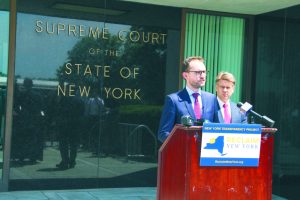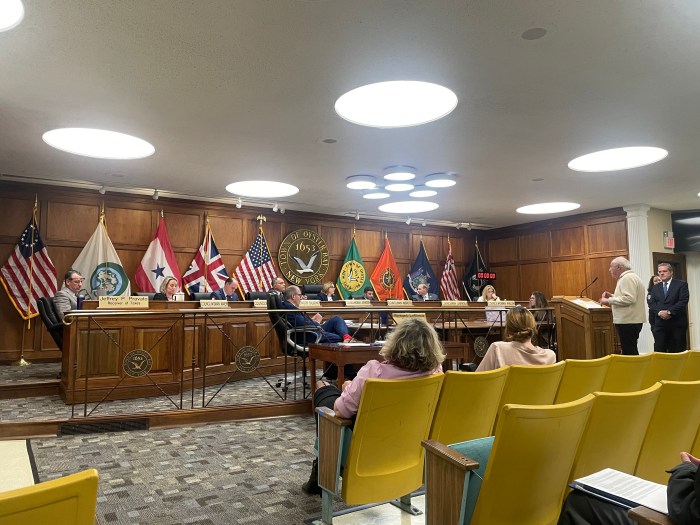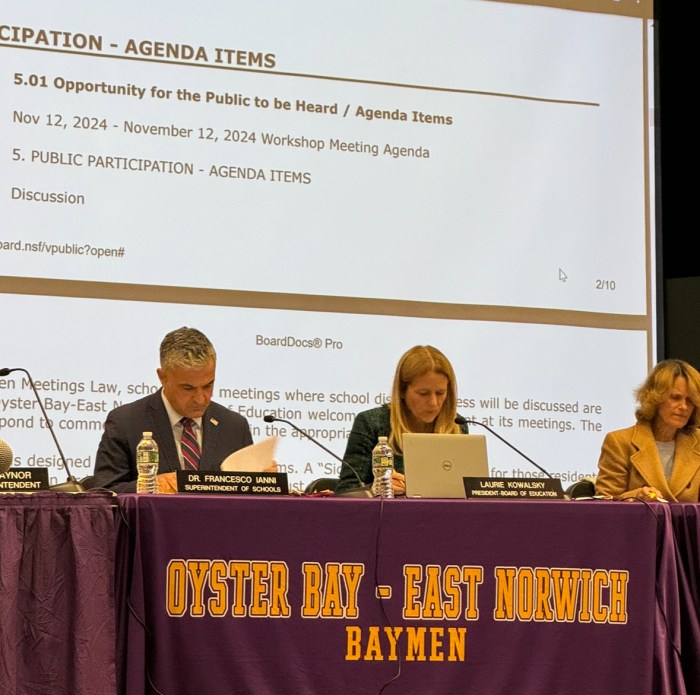
A nonprofit reform group recently filed suit against three Nassau County entities after they failed to comply with a request for public documents.
The group, Reclaim New York Center for Government Reform and Accountability (Reclaim New York), announced the filing of litigation against the Town of Oyster Bay and the Manhasset and Elmont school districts. The suit alleges that all three refused to comply with New York state’s Freedom of Information Law (FOIL), thereby failing to adhere to transparency laws when they denied or ignored requests to reveal contracts and expenditure information.
“New Yorkers shouldn’t have to beg to see how local government spends their money,” said Brandon Muir, Reclaim New York executive director. “This lawsuit and others combine with our grassroots effort to put every public official and taxpayer-funded entity on notice that the days of spending money in the shadows are over.”
The organization launched a statewide transparency project last month to open the checkbooks of all of New York’s 3,400-plus governments to public view. More than 250 FOIL requests were sent to Long Island governments and close to 75 percent of governments across Long Island that received FOIL requests from Reclaim New York provided the information. However, the three subject to lawsuits, as well as more than three dozen others, failed to comply with the law.
Reclaim New York’s attorney, Dennis J. Saffran, said the group is filing Article 78 litigation, which is the general statute to review government action. Saffran said that while dozens failed to open checkbooks to the public, the three named in the suit represent the most egregious offenders.
“The Town of Oyster Bay obstruction was the simplest,” said Saffran. “After we spoke to their lawyers and they said they would look into it, they never called us back. Reclaim New York went above and beyond the legal requirements, sending a formal appeal directly to Supervisor [John] Venditto after the extension period had lapsed. The appeal was ignored.”
After the press conference, Venditto released a statement saying the request was received and the sheer volume of documents has delayed the town’s ability to share the information.
“The town has certainly not ignored or refused to fulfill this request,” said Venditto. “We are working on compiling the roughly 1,400 pages of information and will notify the group of its availability as soon as possible.”
But Muir said Venditto’s statement highlights Reclaim New York’s ultimate goal—to make these documents easily accessible to any citizen who files a request.
“Several entities that we talked with have a culture within them that doesn’t support transparency,” said Muir. “We have an issue of [government entities] not understanding the law. A variety of entities across Long Island don’t post their records access officer’s name and records appeal officer’s name online. When you don’t have those names, you don’t have anyone to send the FOIL to. People working as public officials need to understand what FOIL is, and ultimately we hope they see the value in proactive disclosure. Take a FOIL that’s been requested and produced, when it’s put online. You save your staff time and it makes it easier for the public to understand what’s going on.”
In the coming weeks, all the checkbook information Reclaim New York has received from Long Island will be included in a searchable online database. Reclaim New York said that this public resource will allow any citizen, for the first time, to see how their taxpayer dollars are being spent, and set an example for governments on how they can be proactively transparent.
“We can use technology to ensure accountability,” said Muir. “This effort engages people across the state in demanding not only government compliance, but greater access to spending information. The New York Transparency Project will destroy barriers that keep the public in the dark while government spends more every year.”






























